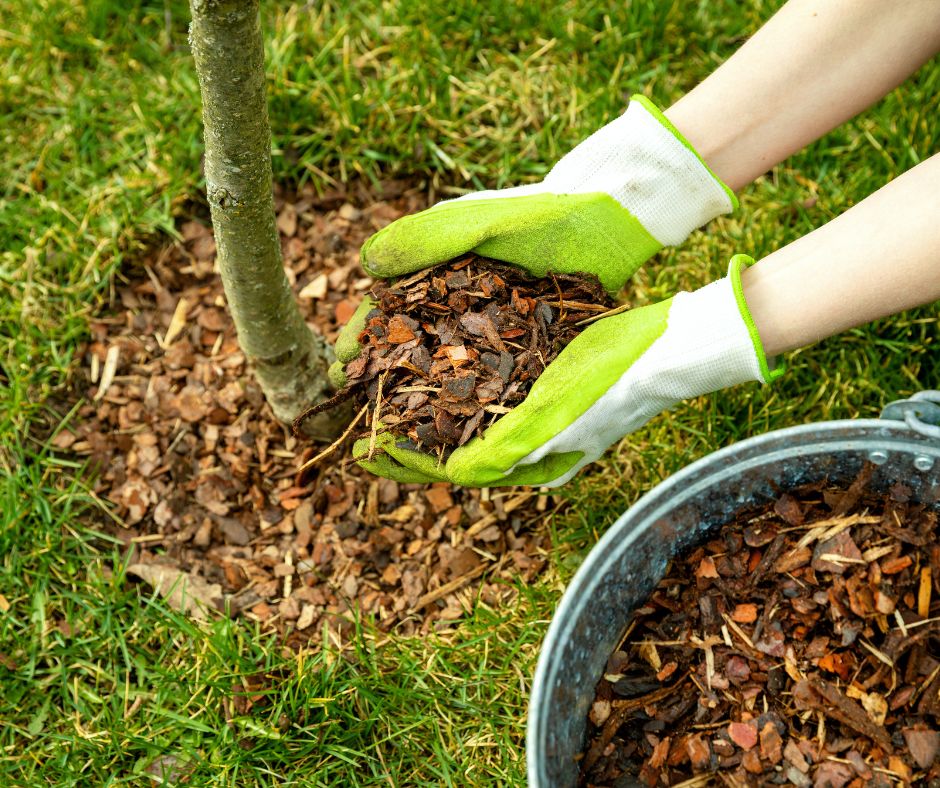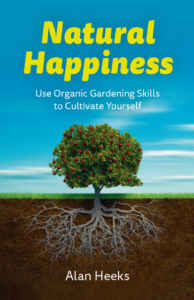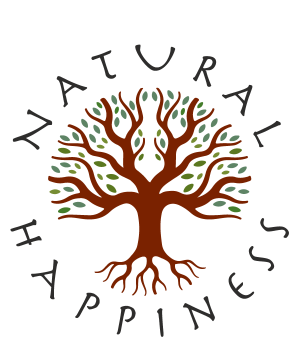Seven Seeds Overview
How can you stay happy when there’s too much change and uncertainty? Are there ways to bounce back and thrive if life is getting you down? Natural Happiness uses skills from organic gardening and farming to help you cultivate your own wellbeing.
The Seven Seeds approach grows from Alan Heeks’ experience of creating gardens, a 130-acre organic farm and a 70-acre conservation woodland. He has led many groups for individuals, communities and work teams using cultivated ecosystems as a model, and the Seven Seeds form the basis for his new book, Natural Happiness: Use Organic Gardening Skills to Cultivate Yourself, now available to order: click here.
1. Nourish Your Roots
A tree is highly resilient to storms, drought and other pressures: key to this is the balance between roots, trunk and branches, akin to inputs, processes and outputs for people. So imagine yourself as a tree, and try the tree talk:
Roots: is your root system broad and deep enough to give you stability under pressure, and to access the resources you need?
Trunk: are your core approaches to life and work giving you flexible strength and using resources well?
Branches: do your outputs feel in balance with the roots and trunk below; or are you over-extended or under-stretched?
A big insight for people from natural systems is that nourishing your ground condition and your roots is key to sustaining your fruits and wellbeing. So look at your inputs, not just outputs, and ensure you’re able to take in the resources you need. For people as for trees, recovering balance and avoiding depletion means feeding the roots and/or pruning back on branches and outputs.
2. Use natural energy sources
The main energy sources for gardens and organic farms are sunlight, water, air and waste: natural, abundant, low-cost and non-polluting. Intensive farming depends on energy from fossil fuels which stimulate growth short term, but deplete the underlying fertility of the land, and its resilience to pests and diseases.
Can you see the parallel for people? Where does your personal energy come from? Often, our efforts are fuelled by stress, anxiety, pressure and caffeine. Pushing ourselves and suppressing problems is like using fossil fuel and pesticides: it builds up residues that reduce natural resilience and creativity. Recall times when you were deeply appreciated, or highly inspired: remember how energised you felt, how things flowed more easily. Appreciation and inspiration are like sunshine and fresh air: they can generate abundant energy, without polluting side effects. Gardening methods like pruning, mulching and crop rotation have human equivalents and can help us to cultivate our human ecosystem and raise our resilience, as can the seasonal growth cycle.
3. Compost your troubles: turn setbacks into useful energy!
 The beauty of any natural cycle is that there is no waste: every output becomes the input to the next stage of the cycle. The organic farmer composts both animal manure and plant waste to create a major source of future fertility, and this is a key to improving soil condition whilst sustaining outputs.
The beauty of any natural cycle is that there is no waste: every output becomes the input to the next stage of the cycle. The organic farmer composts both animal manure and plant waste to create a major source of future fertility, and this is a key to improving soil condition whilst sustaining outputs.
Where is the waste in your life and work that has energy and value? Think about negative feelings like anxiety, or mental stress about conflicts and ‘failures’. Negative feelings and thoughts can become a source of fresh understanding and constructive energy. Composting for people involves skills in communication, conflict resolution, ‘changing the story’, and methods like connected breathing and mindfulness, which can help transform negative energy to positive.
4. Co-creative problem-solving
How do you respond to change and uncertainty? Often we try to suppress it by imposing control; deny it; or give up, because it’s all too much. Gardeners and organic farmers are great examples of how to work with creative tension: using uncertainty, finding the ‘gift in the problem’. By combining our active intent with receptiveness and adaptability, we can create a natural process of dynamic growth which harnesses change to create a beneficial output.
This approach, co-creativity, is central to staying positive and achieving results amid uncertainty. It is a dance combining hopes and facts, pushing and yielding, focused and peripheral vision. The elements in co-creativity include:
- Tolerance for ambiguity, within and around us.
- Developing both intuition and logic, and integrating them: the Diamond Process helps this, explained in the book.
- Synergy: using tension and uncertainty to find the ‘gift in the problem’.
If you spend time with gardeners, organic farmers or foresters, you will see that their response to problems arises partly from listening to the land, or whatever natural resources are involved (for example, yourself or the situation you’re facing). There are two crucial skills in co-creativity: firstly, staying with the tensions of uncertainty, instead of pushing them away; and secondly, the patience and discernment to wait for a resolution to arise from your intuition or some other source.
5. Cultivating community
In these uncertain times, people need community more than ever, but they may need new skills to make it work. So what’s special about community in organic ecosystems, and what can people learn from this? Here are three examples:
Symbiosis: this is the natural mutual support abundant in ecosystems: between different species of plants, animals, insects, and across categories. The relevance for people is to be ingenious and generous in building cooperation with others: give where you can, receive where you need.
Diversity: diverse plants and crops can nourish and protect each other, and raise resilience to disease and pests. Individuals and groups may find it hard to include enough diversity but it’s worth stretching to do so, and learning communication skills to enable this.
Wild margins: these are the unmanaged areas at the edge of an ecosystem, and they play a crucial role in resilience. Wild margins are home to many ‘unplanned’ species of plants, insects and animals: when a new pest or disease strikes the main crops, its antidote is often found in the wild margins. Consider the human equivalent to this: what are the wild margins in your own personal talents, your community, your work team? Studies of human innovation repeatedly show that much of it comes from the wild margins in society, and in individuals.
It’s clear that the mutual support, collective wisdom and other benefits of community are vital for all of us, and there are skills like group dynamics which can help us build stronger communities of all kinds.
6. Growing through climate change
We can learn from cultivated ecosystems about wise responses to climate change, such as regenerative agriculture, which can point us towards de-intensifying, continuous cover and other methods. Plants under stress deepen their roots, and humans can do likewise. We need new frameworks and processes to respond positively, such as Deep Adaptation and Transformational Resilience. The Seven Seeds can offer fresh insights on the big questions, and ways to help you find your focus and see how you can make a positive contribution, drawing on deeper connection with Nature. Seeing humans as part of Nature, not above it, and learning wisdom from all forms of life, are two key steps in this.
7. Natural Inspiration
Sustaining inspiration and positive perspective really matters when we have to face so much uncertainty, and the troubles of the wider world. Nature immersion can help us find faith in a bigger perspective, so we can feel our ‘soul resilience.’ As the climate crisis deepens, we urgently need to balance the needs of ecosystems with those of humans, and dialogue with Nature through methods like attunement can help us to do this. We also need new ways to bring inspiration into self-care, and into our ways of handling both big issues and everyday life: gardening skills and parallels can help us to make this a reality.
 The Seven Seeds approach forms the basis for Alan’s new book, Natural Happiness: Use Organic Gardening Skills to Cultivate Yourself now available to order: click here. If you would like to see related resources, and keep informed about events using this model, click here to sign up for Alan’s free monthly e-newsletter, or see www.naturalhappiness.net.
The Seven Seeds approach forms the basis for Alan’s new book, Natural Happiness: Use Organic Gardening Skills to Cultivate Yourself now available to order: click here. If you would like to see related resources, and keep informed about events using this model, click here to sign up for Alan’s free monthly e-newsletter, or see www.naturalhappiness.net.
